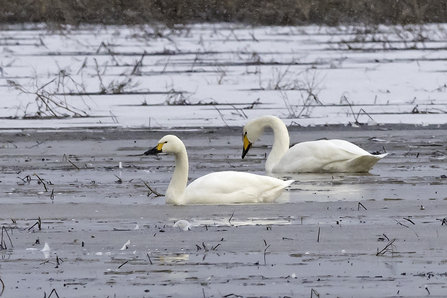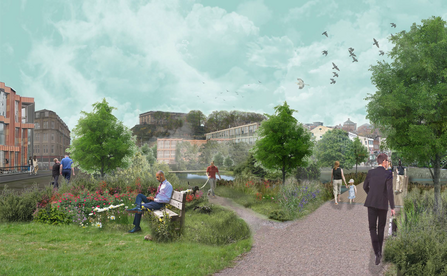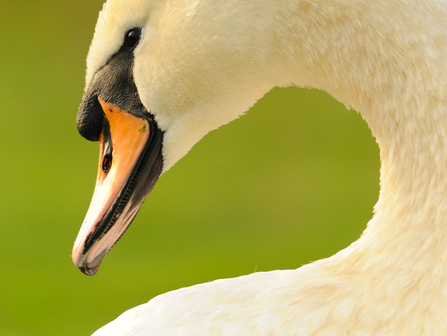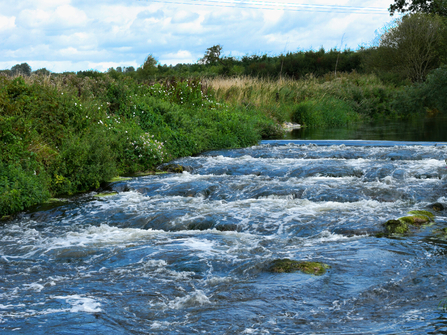Amidst the hype and hyperbole and increasing cynicism surrounding the COP26 conference, news that the Environment Act had been passed by the UK Parliament went almost went unnoticed by the press, but not by those that had spent years working to shape and secure it.

Photo © Mike Vickers
This is a shame as, whatever the relative merits of the international agreements reached at the latest COP, the Act will unquestionably help the Government make progress in tackling the climate and nature crises we all face.
As you might expect, The Wildlife Trusts, which has campaigned for the Bill for over 3 years alongside our supporters, other NGOs, MPs and Peers, very much welcome its passing into law, in its current, much strengthened form, but we also have to reflect that just as the UK was presenting itself as a global leader on climate action – the Environment Act does not live up to its promise of being a "world leading" piece of legislation.
The Government’s plans for the Office of Environmental Protection (OEP), the body which will oversee enforcement, drastically undermine its independence, and sadly, the duty for local authorities to follow Local Nature Recovery Strategies, while crucial - is weaker than it should have been. There are valuable new commitments we welcome but disappointing elements too.

Concept visualisation looking up towards the Castle by Influence
The inclusion of a legally-binding 2030 target for species abundance has the potential to boost efforts to reverse wildlife’s decline and should hopefully put the UK on a path to protect 30% of land and sea for nature by the critical 2030 deadline. A new requirement for planning applications to provide Biodiversity Net Gain, something Nottinghamshire Wildlife Trust is already working on with local planners, will encourage developers to put nature at the heart of their proposals. This should also help to prevent the constant loss of vital habitat to development and should become a useful lever when trying to secure commitments to include natural greenspace in major plans such as the redevelopment of the Broadmarsh in Nottingham.
Despite these useful new tools, the Government resisted all efforts to put legally binding interim targets within the Act – meaning we’re left with legislation lacking accountability and potentially a regulator without teeth.

Local Nature Recovery Strategies will create the framework for a national system of interconnected sites for nature – a very welcome step. But although plans for the Office for Environmental Protection (OEP) have been improved by ministers, the Secretary of State’s ability to provide the OEP with “guidance” – even where cases affect ministers themselves – will drastically undermine its independence and credibility.

Photo © Amy Lewis
The Government must now use every power at its disposal to tackle the inseparable climate and nature crises. In the months running up to COP26 the UK sought to position itself a global leader on climate action but, despite containing valuable new commitments, this Environment Act doesn’t live up to that promise at a time when many of us wanted, and nature needed, much more.
The Wildlife Trusts will continue to campaign to see a #WilderFuture to tackle the nature and climate crises and we won't stop holding the Government accountable to its promises for nature.
We know we have to act urgently on both the climate and nature emergencies and as move forward as a nation it will be vital that Government agencies like Natural England and the Environment Agency are now given the funding necessary to enable them to fulfil their roles in delivering the objectives of the Act. Without adequate funding we will inevitably continue to see habitats decline and our rivers badly polluted- in the face of growing public anger.


